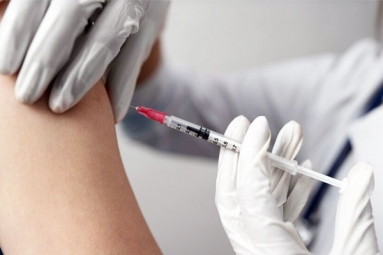
(Image source from: fool.com)
In the light of recent events wherein the novel coronavirus has already infected over 2.7 million people across the globe, scientists and researchers are working day in and day out to find effective treatment options for the infection.
Remdesivir, a drug that was on trial for the covid-19 infection failed to provide results. It failed in the first randomised clinical trial, dampening the expectations of the scientists who were looking forward to seeing some positive changes.
A draft summary of the results was posted on the official website of World Health Organisation (WHO) and was later reported by new agencies with screenshots of the reports.
Gilead Sciences, the company which is behind this medication, suggested that the now deleted post did charactised the possible findings, stating that the data did suggest a potential benefit of the drug.
According to the summary of the study, it reported that the trial was conducted with 237 patients from China, in which 158 people were administered with the drug, while the rest was control group. Remdesivir was stopped early on in 18 of the patients when they started showing negative signs.
“Remdesivir was not associated with a difference in time to clinical improvement compared to the control,” said the authors of the study.
The results were reported after a month where the researchers found that 13.9% of the patients on the drug died while 12.8% in that of the control group. The difference between the two is not statistically significant.
WHO has informed Financial Times that the draft is undergoing strict peer review to get a better understanding of things.
One of the spokesperson for Gilead even informed that the post includes inappropriate characterisations of the study. According to them, the study was terminated early because of the low enrollment rates and thus making the statistical findings non-viable.
"As such, the study results are inconclusive, though trends in the data suggest a potential benefit for remdesivir, particularly among patients treated early in disease," the spokesperson further concluded.
The study doesn’t represent the final results or the final word on this matter. Further, large scale trials in some of the advanced stages need to be conducted to get a better and bigger picture of things.
Remdesivir is administered intravenously and was one of the first drugs that was suggested for clinical trials for the novel coronavirus. Even a number of researchers and scientists from across the world have reported that the subject percentage and size was too small to give better and conclusive results.
Stephen Evans, a professor of pharmacoepidemiology at the London School of Hygiene & Tropical Medicine said that if the drug is effective only during the initial phase of the infection, it is not the answer at the moment.
Just last week, some of the reports suggested good impacts of this drug in some patients admitted in a hospital in Chicago. These patients were part of a massive trial that was being conducted during that time.
The US National Institutes for Health also reported that the drug proved fruitful in small monkeys too.
Remdesivir has been used before for the treatment of Ebola as well and is a drug that has the potency to attack the virus directly. It mimics the functions of either the RNA or DNA and gets absorbed into the genome of the individual which then helps inhibit the process of further replication of the virus.
Apart from this drug, authorities have also been conducting huge randomised trials for the impacts of hydroxychloroquine and chloroquine on the health of the individuals. The results from these trials are still pending.
Some of the other therapies that have been in use include the plasma therapy, that help harvest the antibodies from the body of a former infected patient into the body of an infected patient.
By Somapika Dutta






















